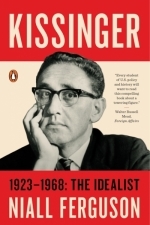
AppyCal - the happy calendar
Productivity and Business
App
--------------- HOLIDAYS INCLUDED FOR MANY COUNTRYS --------- AppyCal 4.0 is here including...

Caller Id - Truecaller info
Productivity
App
You have missed calls from a unidentified number? You want to know who called you? Then this app is...

LetterMpress
Entertainment and Lifestyle
App
ATTENTION: LetterMpress will not be upgraded to work with the next update of iOS 11. LetterMpress...

TravelBird
Travel and Catalogs
App
Are you looking for an affordable getaway? Our free travel app gives you instant access to the best...

Kissinger: 1923-1968: The Idealist
Book
The definitive biography of Henry Kissinger, based on unprecedented access to his private papers ...
History politics

Callcorder Pro: Record Phone Calls
Business and Utilities
App
Callcorder allows you to record incoming & outgoing phone calls on iPhone. Steps to record when you...

Automatic Call Recorder Pro
Business
App
Automatic Call Recorder: Top #1 business app in The United States, United Kingdom, Canada,...

The Flying Classroom
Book
A Spectator, Guardian, <Times, Independent on Sunday, Lovereading4kids and Mumsnet Book of the Year ...

Luciferian Towers by Godspeed You Black Emperor
Album Watch
Luciferian Towers is a heavyweight 180gram audiophile pressing from Optimal (Germany) and comes in a...
rock

RacquetTune - String Tension
Sports and Utilities
App
Listen to your racquet and perfect your game! RacquetTune ensures that your racquet is ideally...